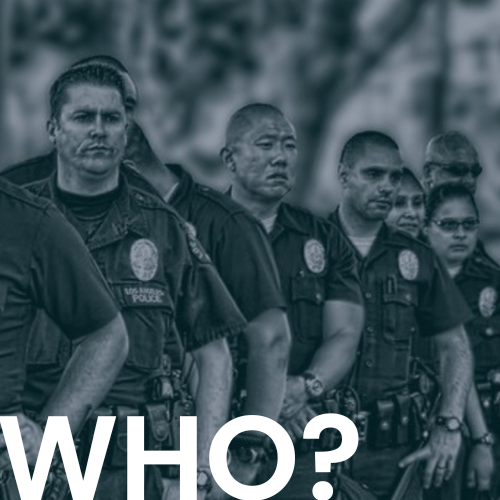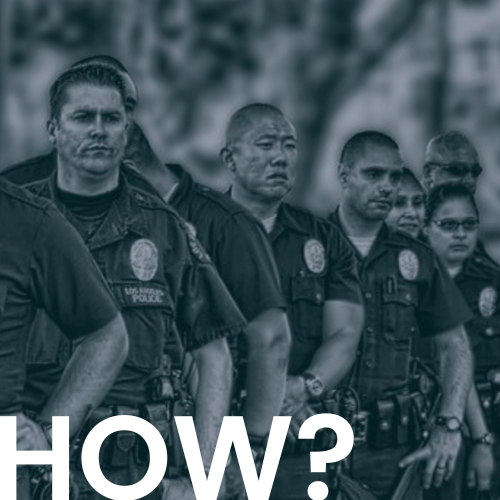This Brady List is now, and always will be, open to the public.
Making Brady disclosures builds trust in the community through transparency by demonstrating a commitment to fairness, accountability, and the pursuit of justice. The concept of Brady disclosures originates from the landmark U.S. Supreme Court case Brady v. Maryland (1963), which mandates that prosecutors must disclose exculpatory evidence to the defense. Exculpatory evidence refers to information that could potentially prove the defendant's innocence or cast doubt on the prosecution's case. By adhering to Brady obligations, law enforcement agencies and prosecutors foster an environment of openness and honesty that strengthens the bond between the criminal justice system and the communities it serves.
Transparency in the legal process is vital for community trust. When law enforcement agencies and prosecutors disclose all material evidence, even if it benefits the defense, it demonstrates a commitment to seeking the truth and upholding justice, rather than simply securing convictions. The community recognizes that their well-being and safety depend on a justice system that operates with integrity and fairness, and Brady disclosures play a key role in promoting this perception.
Brady disclosures help dispel perceptions of bias or manipulation within the criminal justice system. When the community sees that law enforcement agencies are actively fulfilling their duty to disclose exculpatory evidence, they are more likely to believe that the system is working impartially and not against any particular group or individual. This perception of fairness and equality contributes to greater trust in law enforcement and the legal process.
Transparency also leads to greater accountability. When law enforcement agencies and prosecutors are open about the evidence they possess, it becomes easier to hold them accountable for their actions. If there are concerns or suspicions of prosecutorial misconduct or evidence suppression, the community and oversight bodies can scrutinize the disclosure process and demand answers. This level of scrutiny acts as a deterrent against unethical behavior, as law enforcement personnel know that their actions are subject to public and legal scrutiny.
By building trust through transparency, Brady disclosures encourage community cooperation with law enforcement. When people believe that the criminal justice system operates with integrity, they are more likely to cooperate with investigations, provide information, and act as witnesses in criminal cases. This collaboration between law enforcement and the community is essential for effective crime-solving and maintaining public safety.
Brady disclosures also facilitate the understanding of the criminal justice process. When the community is aware of the evidence presented in court, including any exculpatory evidence, they can better comprehend the basis for decisions and verdicts. This understanding promotes a sense of legitimacy and trust in the outcomes of criminal cases. It also helps dispel misconceptions or conspiracy theories that can erode community trust in the justice system.
The impact of Brady disclosures extends beyond individual cases. When law enforcement agencies and prosecutors consistently fulfill their Brady obligations, they send a powerful message about their commitment to transparency and the rule of law. This contributes to a positive reputation for the criminal justice system as a whole, enhancing trust in its ability to maintain order and protect the rights of all citizens.
In conclusion, making Brady disclosures is a vital component of building trust in the community through transparency. By disclosing all material evidence, law enforcement agencies and prosecutors demonstrate a commitment to fairness, accountability, and the pursuit of justice. This transparency dispels perceptions of bias, encourages community cooperation, and fosters a better understanding of the criminal justice process. Ultimately, Brady disclosures play a crucial role in promoting public trust in the integrity of the criminal justice system and its ability to serve and protect the community effectively.






![Peace Officer Standards & Training [POST] Departments Peace Officer Standards & Training [POST] Departments](/sites/default/files/styles/large/public/2023-07/Brady.png?itok=xsIFvU8R)
![Organizations [Law Enforcement et al.] Organizations [Law Enforcement et al.]](/sites/default/files/styles/large/public/2023-07/Brady%20%282%29.png?itok=H7Pj15F8)

